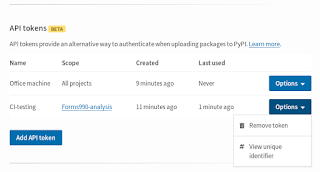from locale import seasons_greetings
seasons_greetings()
seasons_greetings()
On behalf of the entire Python development community, and the currently serving Python release team in particular, I'm pleased to announce the unprecedented combined release of no less than four versions of Python. Let's dig in!
Python 3.8.1
Python 3.8.1 is the first maintenance release of Python 3.8. The Python 3.8 series is the newest feature release of the Python language, and it contains many new features and optimizations. You can find Python 3.8.1 here:
See the “What’s New in Python 3.8” document for more information about features included in the 3.8 series. Detailed information about all changes made in 3.8.1 can be found in its change log.
Maintenance releases for the 3.8 series will continue at regular bi-monthly intervals, with 3.8.2 planned for February 2020.
Python 3.7.6
Python 3.7.6, the next bugfix release of Python 3.7, is also available. You can find the release files, a link to the change log, and more information here:
Python 3.9.0a2
An early developer preview of Python 3.9 is also ready:
https://www.python.org/downloads/release/python-390a2/
Python 3.9 is still in development. This releasee, 3.9.0a2 is the second of six planned alpha releases. Alpha releases are intended to make it easier to test the current state of new features and bug fixes and to test the release process. During the alpha phase, features may be added up until the start of the beta phase (2020-05-18) and, if necessary, may be modified or deleted up until the release candidate phase (2020-08-10). Please keep in mind that this is a preview release and its use is not recommended for production environments.
https://www.python.org/downloads/release/python-390a2/
Python 3.9 is still in development. This releasee, 3.9.0a2 is the second of six planned alpha releases. Alpha releases are intended to make it easier to test the current state of new features and bug fixes and to test the release process. During the alpha phase, features may be added up until the start of the beta phase (2020-05-18) and, if necessary, may be modified or deleted up until the release candidate phase (2020-08-10). Please keep in mind that this is a preview release and its use is not recommended for production environments.
Python 3.6.10
And, one more thing: Python 3.6.10, the next security fix release of Python 3.6, is also available:
We hope you enjoy all those!
Thanks to all of the many volunteers who help make Python Development and these releases possible! Please consider supporting our efforts by volunteering yourself or through organization contributions to the Python Software Foundation.
Your friendly release team,
Ned Deily
Steve Dower
Łukasz Langa







